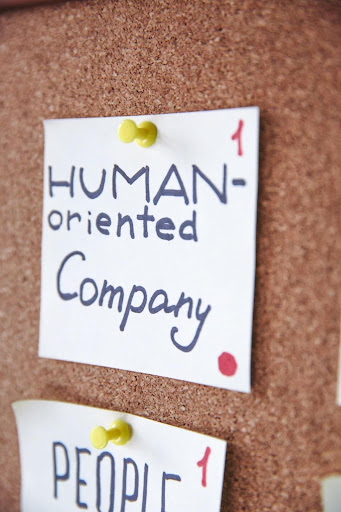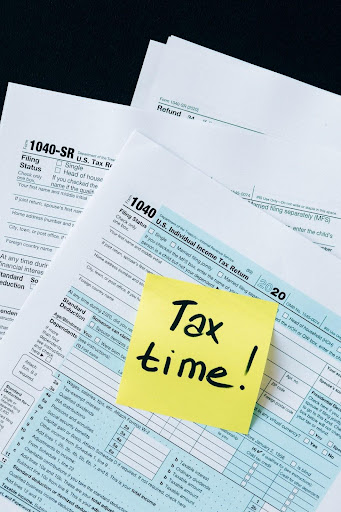Navigating the Busy Season: Work-Life Balance for Accountants

Contents
Work-Life Balance for Accountants
Here is the thing. A typical audit or accounting firm has a 9 to 5 work schedule throughout the year and sometimes 9 to 3 in the summer. Moreover, the busy year-end seasons can get even more hectic, depending on the nature of the client operations, backlogs, and approaching reporting deadlines. Then, does work-life balance for accountants exist?
A recent survey of accountants by the CPA Journal indicates that up to 45% of these professionals are balancing work and life in accounting. Further, the findings show that most respondents prefer working in firms with flexible work arrangements in accounting, defined career paths and job growth prospects, supportive leadership, and a conducive organizational culture for a work-life balance for accountants. Interestingly, these accountant burnout prevention strategies are less prevalent in public accounting. Respondents in public accounting were more tolerant of working longer hours.
From the above study, we can conclude that balancing work and life in accounting is only achievable when intentional. Hence, this quick guide shares seven valuable tips for achieving a healthy work-life balance for accountants.
Let’s dive in!
A Typical Day in the Life of an Accountant

A typical accountant graduates from a business school, sits for more examinations to certify as a practicing accountant and starts practicing in a busy accounting firm. At the accounting or auditing firm, the new recruit has to quickly learn how to manage accounting systems, prepare daily, weekly, and monthly reports, pay suppliers, collect from debtors, maintain internal accounting processes and controls, and assist internal and external auditors at the end of every financial period. Without any accountant wellness strategies or accountant burnout prevention, these fresh graduates may experience fatigue sooner rather than later.
Data from the Bureau of Labor and Statistics indicate that accountants work up to 47 hours weekly. Hence, work-life balance for accountants remains one of the significant accounting industry challenges facing modern accountants. Here, the accountant is prone to repetitive burnout and health challenges like stress, anxiety, and depression. Yet, small changes like always taking that tea or lunch break can make a difference between a productive accounting professional and an ineffective one.
Then, what does balancing work and life in accounting entail? What tactics do you use for stress reduction for financial professionals?
7 Tips for Balancing Work and Life in Accounting
Are You In the Right Profession?

Are you passionate about accounting or in it for the money? That is, do you enjoy handling your current accounting tasks? For example, an accountant managing the payables aging should know how to deal with pressure from suppliers. Likewise, a tax accountant should use work-life balance tips for tax season, like excellent communication skills and managing client expectations. Balancing work and life in accounting is impossible without a passion for the job or accountant wellness strategies.
Work With Companies That Value You

The easiest way to ensure stress reduction for financial professionals is by working with an accounting or auditing firm that values its employees. For example, work with a firm that focuses on productivity instead of work hours, encourages employees to take regular breaks during working hours, regularly reviews workloads, and leads by example in implementing a work-life balance for accountants.
Here is an extra checklist you can use when accepting a job offer from companies that prioritize balancing work and life in accounting: -
- Does your firm offer support balancing work and life in accounting for professionals who are parents?
- Do you have all the supplies to get work done and maintain a healthy work-life balance for accountants?
- Does the company respect your personal time, or do you have to check your work emails and be within reach even while on vacation?
- Is the company open to hiring internally for its top executive positions, or does it reserve these high-paying jobs for external applicants? A company that values its employees will have a well-defined career progression plan, allowing junior accounting staff to scale up and become partners.
- Does the company reciprocate your hard work with flexible work arrangements in accounting, giving you time to focus on personal career goals?
Plan for a Healthy Work-Life Balance for Accountants

If you are a practicing accountant who is also in school or has a family or an active hobby, know how to manage the demands from all these aspects of your life. For starters, define what you value the most. If it is your career growth, how much time do you spend on it? Next, set healthy boundaries between work and personal life. Indeed, balancing work and life in accounting is a team effort. Communicate these healthy boundaries for accountants to your colleagues and loved ones for easy transitions.
Finally, set realistic career goals that support a healthy work-life balance for accountants. Break down these goals into daily achievable targets. Reward yourself with that family vacation, bonus, or shopping voucher for every milestone you attain. Revise these goals regularly to reflect your changing work and lifestyle dynamics.
Start Your Day with Me Time
 Financial professional well-being and a healthy work-life balance for accountants begin with allocating some me-time for yourself each morning. For example, use the first hour of your day to maintain a steady workout routine. Regular physical exercise improves your mood, controls your weight, strengthens bones and muscles, elevates your energy levels, and minimizes the risk of chronic illnesses like hypertension, diabetes, heart disease, and certain types of cancer.
Financial professional well-being and a healthy work-life balance for accountants begin with allocating some me-time for yourself each morning. For example, use the first hour of your day to maintain a steady workout routine. Regular physical exercise improves your mood, controls your weight, strengthens bones and muscles, elevates your energy levels, and minimizes the risk of chronic illnesses like hypertension, diabetes, heart disease, and certain types of cancer.
Use Digital Tools to Track Your Work

Gone are the days when accountants relied solely on calendars and digital to-do lists accessible from multiple devices to facilitate their work schedules. Indeed, we have dozens of digital tools for financial professional well-being and time management for accountants. The all-in-one management software for accountants like Basil brings all these digital capabilities in one place to facilitate a healthy work-life balance for accountants. It gives accountants access to valuable tools like a client portal, project tracking, time tracking, report generation, e-signatures, document editing, and reliable CRM.
Apart from time management tools, accountants have access to accounting software and analytical tools for data mining and analysis, forecasting, advanced reporting, presentation, and machine learning. As the world shifts towards artificial intelligence, accountants can tap into AI to perform their repetitive tasks, freeing their time to focus on their core functions while having a social life.
Working Smarter When Multitasking

A typical day for an accountant entails working on different tasks at once. Without a plan, this multitasking can be overwhelming even to the seasoned professional. For this, we suggest working smarter, not harder. Indeed, a healthy work-life balance for accountants is about solving problems. Prioritize your workload and allocate more time to the most crucial tasks. Then, maintain a steady pace on the current assignment to avoid unnecessary mistakes and revisions later. Likewise, if you are part of a remote team, designate a quiet workstation at home where you can work with minimal distractions.
Managing the Tax Season

The tax season is one of the busiest times for accountants and has notable accounting industry challenges. Here, accountants are working overtime to assemble all paperwork for tax returns. Without a clear strategy, the accountant may get into “flight mode” and make serious errors, omissions, or delays, resulting in significant tax penalties.
Then, we suggest practicing yoga, deep breathing, and meditation to maintain your mindfulness in accounting. These relaxation techniques allow you to unplug and reflect on your well-being. Deep breathing stimulates the subconscious mind to release any stress buildup. Likewise, meditation can help you focus on the present demands and evoke creativity and imagination to solve current challenges.
Here are more work-life balance tips for tax season: -
- Anticipate the tax season and start on a clean slate. Focus on the work-life balance tips for tax season, like removing or reassigning non-tax-related tasks.
- Know how to manage client expectations. A client who knows when to expect their returns will give you space to do all tasks on time.
- Categorize the tax responsibilities and delegate repetitive tasks to facilitate mindfulness in accounting.
- Separate corporate from individual tax returns to avoid erroneous tax submissions and abide to effective time management for accountants
- Prepare for complex tax issues. For example, engage a tax expert to deal with or guide you on new tax regulations and policies.
- Work as a team. Provide the necessary support to your teammates to meet your tax deadlines. Acknowledge the extra effort by your teammates during the tax season and reward them for it.
- Revise the accountant time off policies to reflect the extra input necessary during the busy tax season.
Conclusion
Achieving a healthy work-life balance for accountants is not easy. But, it is achievable. Hence, accountants should strive to work smarter, not harder. It is about enjoying what they do, seeking auditing and accounting firms that value them, setting healthy boundaries for accountants, using digital tools to facilitate work, and managing busy periods like the tax season. That way, their work schedules will feature accountant time off policies conducive to a successful work-life balance for accountants.